Enhancing observation skills Science Worksheets for Ages 5-7
9 filtered results
-
From - To
Enhance your child's observation skills with our engaging Science Worksheets designed specifically for ages 5-7. These interactive materials promote hands-on learning and help young learners develop keen observational techniques. Children will explore the natural world, identify patterns, and make discoveries, fostering scientific curiosity and critical thinking. Our worksheets feature vibrant illustrations and age-appropriate exercises, making science fun and accessible. Perfect for home or classroom use, these resources support the foundational skills necessary for further scientific study. Ignite your child’s interest in science and help them sharpen their observation skills today with our thoughtfully designed worksheets!


Pollinator Positions Worksheet
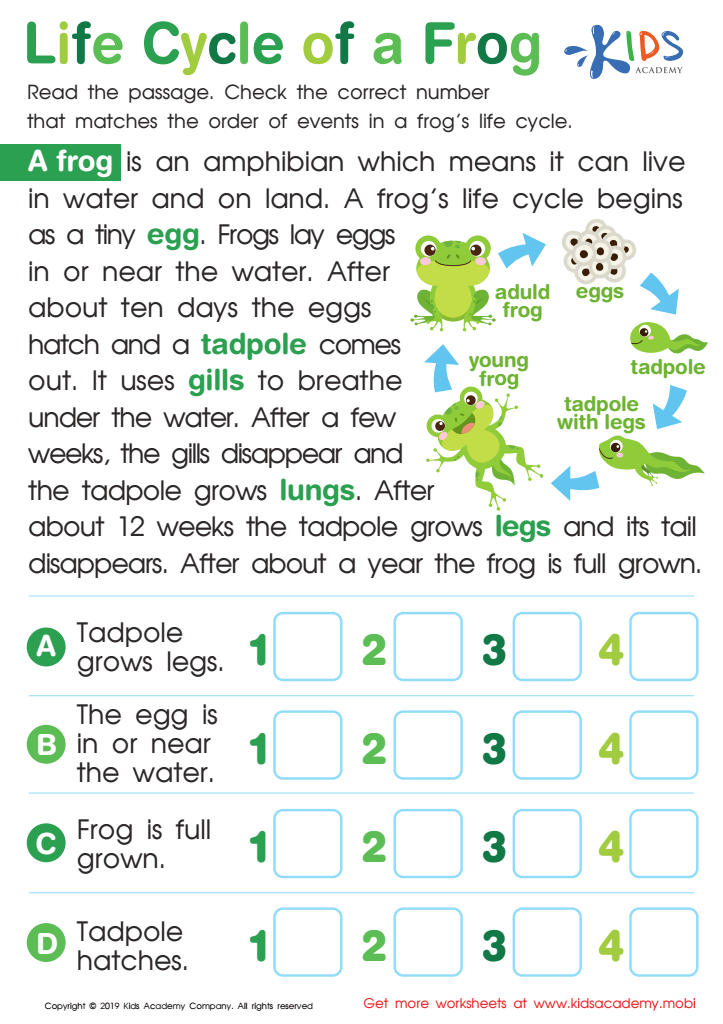

Life Cycle of a Frog Worksheet
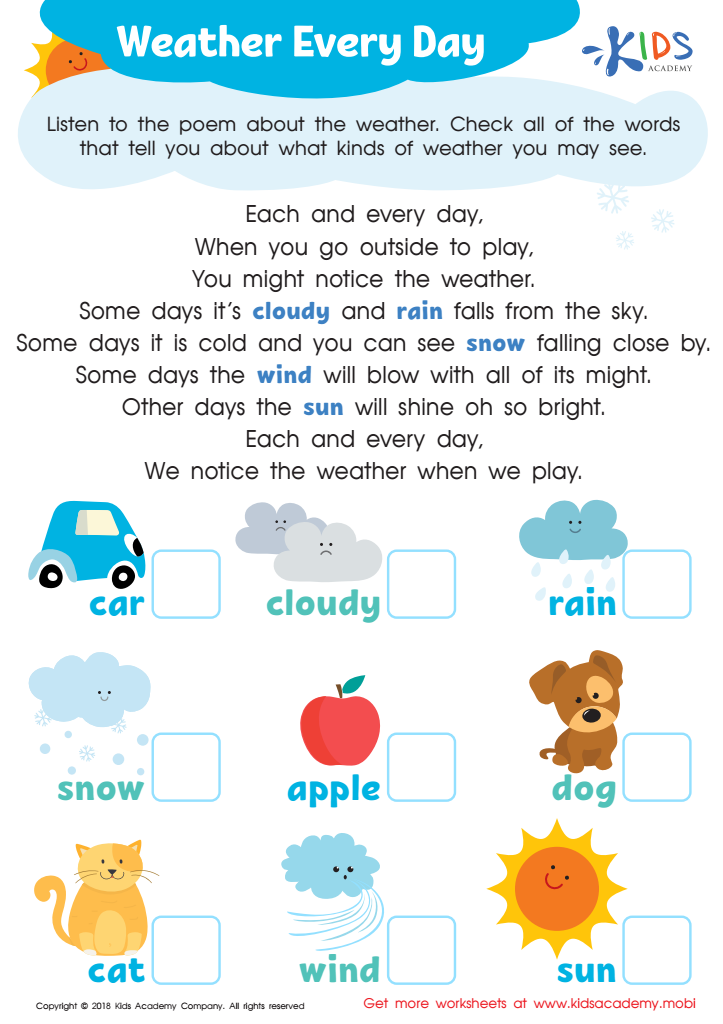

Weather Every Day Worksheet
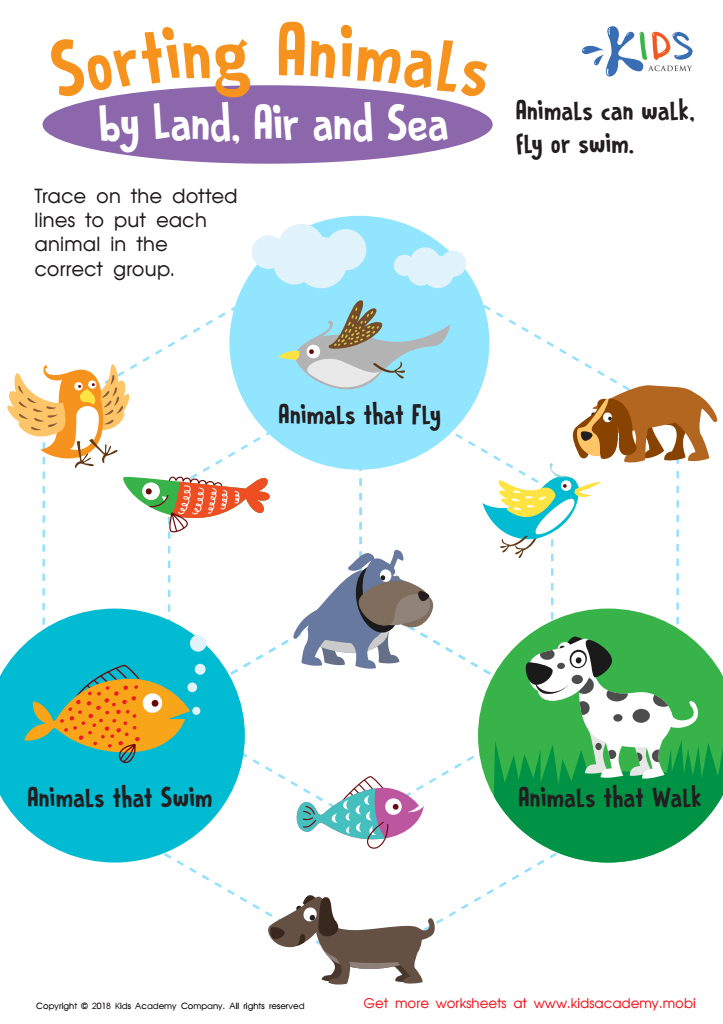

Sorting Animals by Land, Air and Sea Worksheet
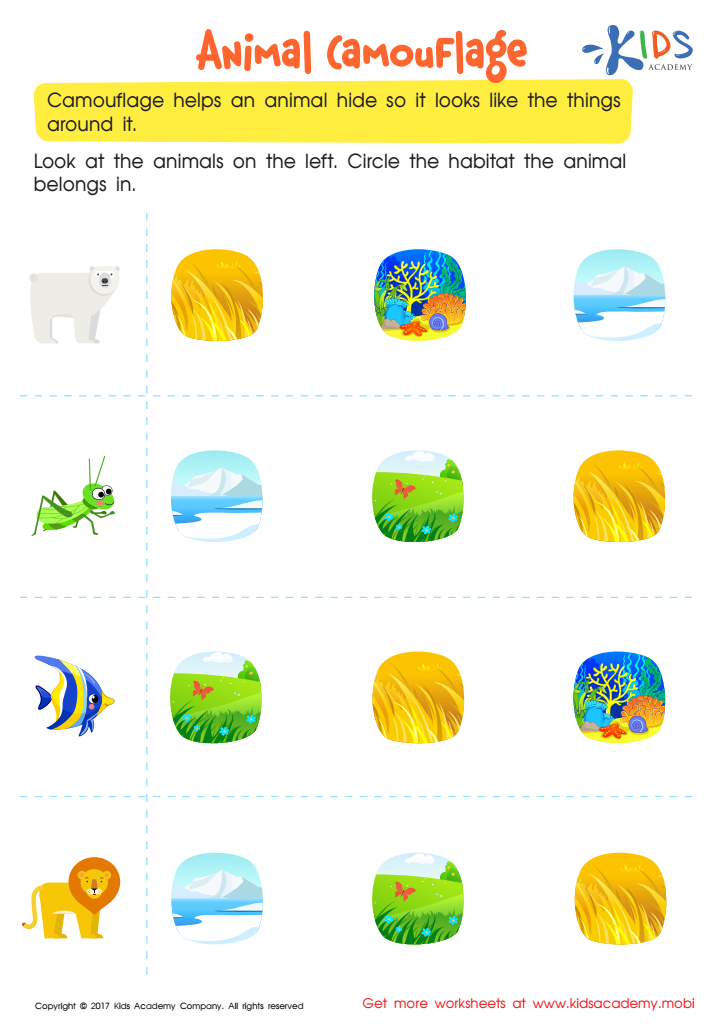

Animal Camouflage Worksheet
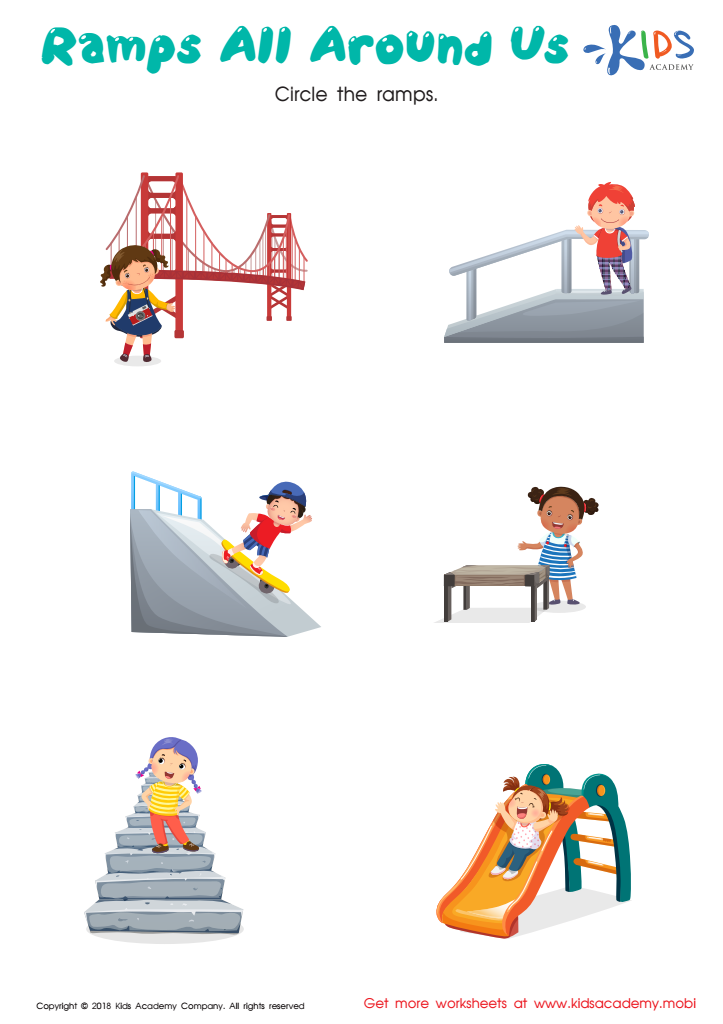

Ramps All Around us Worksheet
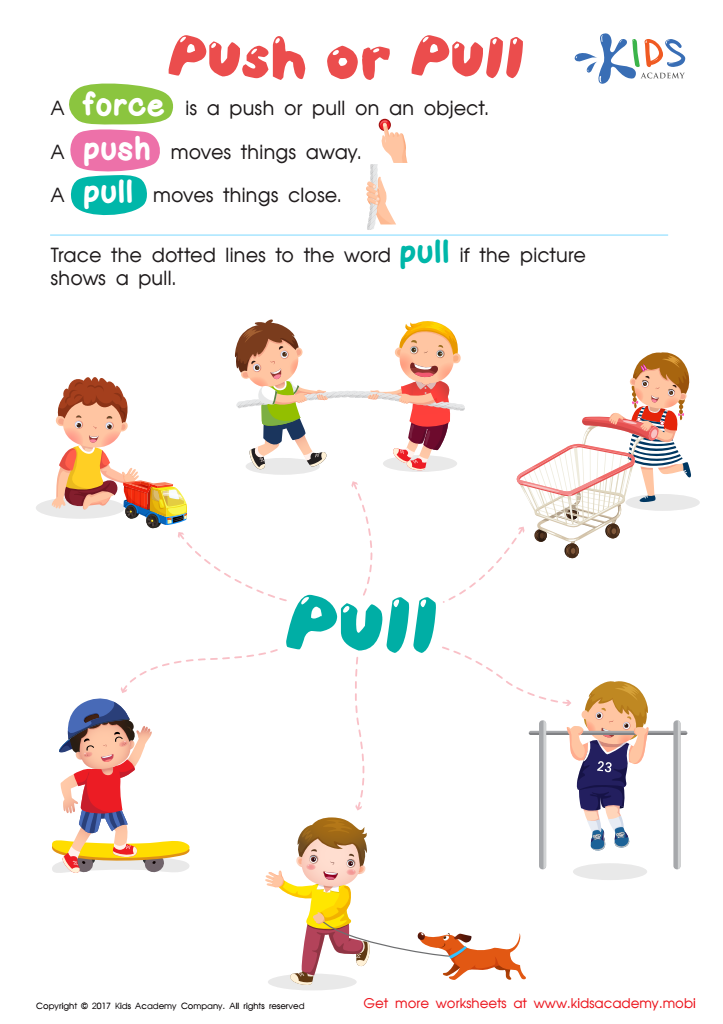

Pull or Push Worksheet
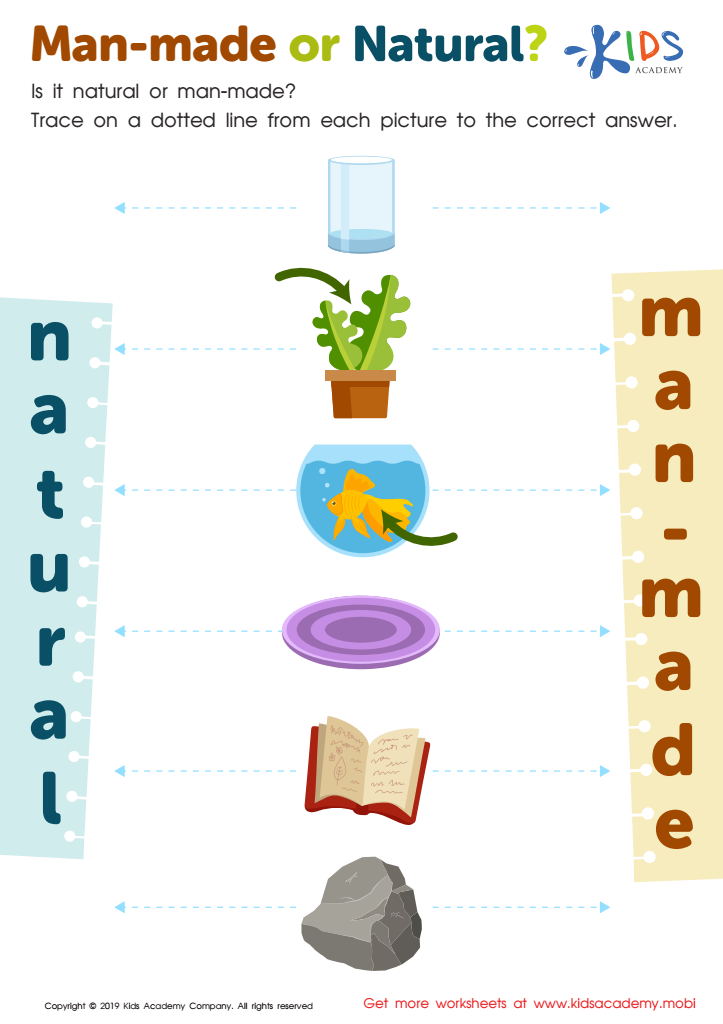

Man-Made or Natural? Worksheet
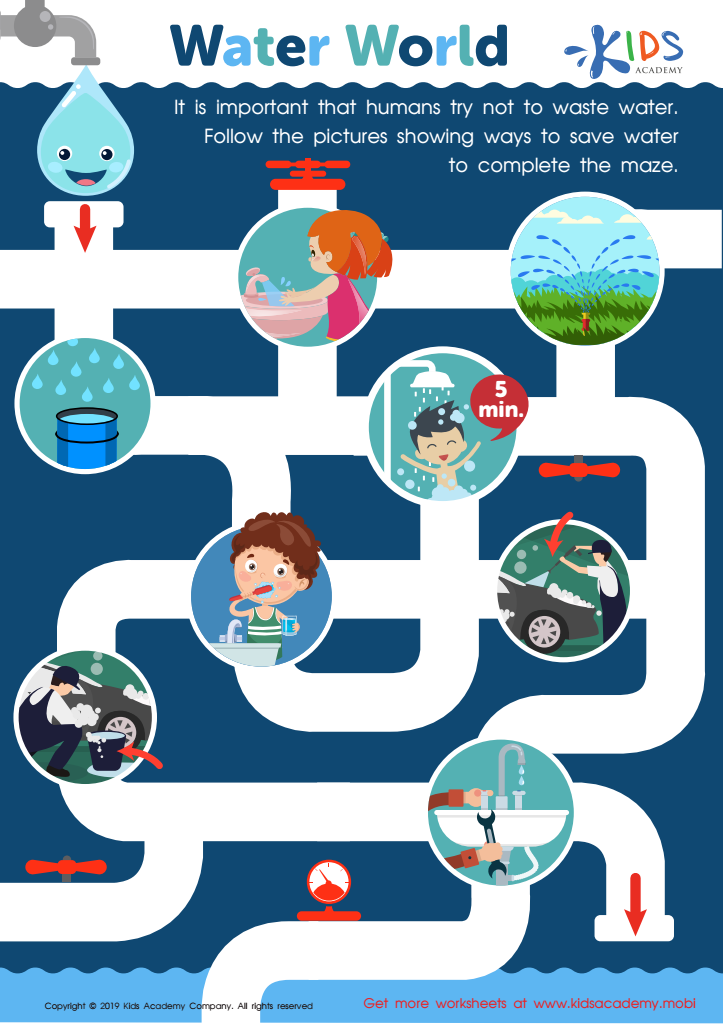

Water World Worksheet
Enhancing observation skills in young children, particularly those aged 5 to 7, is crucial for their cognitive development and academic success. Parents and teachers should prioritize this skill as it serves as the foundation for all scientific learning. Through careful observation, children learn to notice details, make connections, and ask questions about their environment, fostering curiosity and critical thinking.
At this age, children are naturally inquisitive, making it an ideal time to nurture their ability to observe. Engaging them in hands-on activities, such as nature walks or simple science experiments, allows them to practice and refine their observation skills. This experiential learning not only promotes a deeper understanding of scientific concepts but also enhances their language skills as they describe their findings and share their thoughts.
Moreover, observation skills contribute to improved focus and attention, helping children become more engaged learners. They learn to analyze and interpret information, a key aspect of scientific inquiry that provides a solid groundwork for future education. Additionally, these skills boost confidence, as children feel empowered to explore and investigate the world around them. In sum, fostering observation skills in early childhood creates a lifelong love for learning and prepares children for academic challenges ahead.
 Assign to My Students
Assign to My Students









.jpg)










